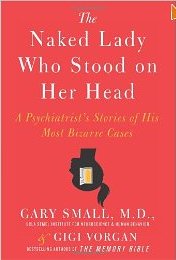October 18th, 2010 by John Mandrola, M.D. in Better Health Network, Health Policy, News, Opinion
Tags: Apolitical, Cardiovascular Risk, Coke, Dr. John Mandrola, Food Stamps, Government Safety Nets, Government-Dependent, Government-Sponsored, Health of Americans, Heart Attacks, Michael Bloomberg, New York City, NYC, Obesity-Fostering, Public Health, Public Smoking Ban, Soft Drinks, State-Supported, Trans Fats Ban, U.S. Department of Agriculture, USDA, Wall Street Journal, Wellness Promotion
No Comments »

You can be for freedom. You can be for smaller government that intrudes less. You can be for lower taxes. You can be for most anything, but if you’re interested in improving the sagging health of American citizens, get on Michael Bloomberg’s wheel.
As reported in the Wall Street Journal, NYC mayor, Michael Bloomberg, has asked the U.S. Department of Agriculture to bar city residents from using food stamps to buy sugary soft drinks. It turns out that last year $135 million in food stamp money was used for the consumption of these obesity-fostering beverages in NYC alone.
Mr Bloomberg is morphing into a real-world public health super star. Previously, he was a pioneer in banning smoking in restaurants and bars. They said it could not be done, or that it wouldn’t work. Well, the naysayers were dead wrong. Now public smoking bans our commonplace and, backed by objective data, are accepted as having prevented thousands of heart attacks. Read more »
*This blog post was originally published at Dr John M*
October 18th, 2010 by BobDoherty in Better Health Network, Health Policy, News, Opinion, Research
Tags: ACP Advocate, American College Of Physicians, Bob Doherty, comparative effectiveness research, Health Affairs, Healthcare Policy, Healthcare reform, Less-Effective Care, Less-Effective Treatments, Medicare, Medicare Payment Fix, Medicare Reimbursement, Medicare's Agnosticism, Patient Protection and Affordable Care Act, PPACA, Rationed Care, Wall Street Journal Health Blog
No Comments »

From its inception, Medicare has been agnostic about the effectiveness of different treatments when it sets payment rates. Once a treatment is found to be “reasonable and necessary,” Medicare establishes a payment rate that takes into account complexity and other “inputs” that go into delivering the service. But it is prohibited by law from varying payments based on how well an intervention works.
This would change under a “dynamic pricing” approach proposed by two experts in this month’s issue of Health Affairs. The article itself is available only to Health Affairs subscribers, but the Wall Street Journal health blog has a good summary.
The researchers propose that Medicare pay more for therapies with “superior” results and the same for two therapies with comparable effectiveness. A new service without any evidence on its relative effectiveness would be reimbursed in the usual way for the first three years, during which research would be conducted on its comparative effectiveness. If such research found that the service was less effective than other interventions, Medicare would have the authority to reduce payments. If it was found to be more effective, Medicare could pay more than for other available interventions. The WSJ blog gives an example of how this would work. Read more »
*This blog post was originally published at The ACP Advocate Blog by Bob Doherty*
October 17th, 2010 by Peter Lipson, M.D. in Better Health Network, Health Tips, Opinion, Quackery Exposed, Research
Tags: Age-Related Testosterone Deficiency, CAM, Complementary And Alternative Medicine, Direct-To-Consumer Drug Advertising, Dr. Peter Lipson, Endocrine Society, Endocrinology, Evidence-Based Healthcare Decisions, Hormone Replacement Therapy, HRT For Men, Low Sex Drive, Low T, Low Testosterone, Male Sexuality, Men's Health, Pharma Advertising, Pharmaceutical Companies, Reproductive Health, SBM, Science Based Medicine, Science-Based Treatments, Sexual Health, Snake Oil, Solvay, Testosterone Deprivation, Testosterone Replacement Therapy
No Comments »

If you google “low testosterone” you’ll see lots of ads for testosterone replacement. Some are from pharmaceutical companies that sell testosterone, others from obvious snake-oil salesmen.
Both types of ads list vague sets of symptoms, encourage you to believe that they are pathologic, and want to sell you something to make you better. For example, the pharmaceutical company Solvay gives you a handy guide for speaking to your doctor, and a quiz to see if you have “low T.” The quiz asks some questions that may be useful, but also asks very general questions about your sense of well being. Read more »
*This blog post was originally published at Science-Based Medicine*
October 17th, 2010 by Dinah Miller, M.D. in Better Health Network, Book Reviews, Opinion, True Stories
Tags: Dr. Dinah Miller, Dr. Gary Small, Friends Treating Friends, General Medicine, Medical Professionalism, Medical Treatment Of Friends, My Three Shrinks, Professional Boundaries, Professional Judgment, Professionalism In Healthcare, Psychiatry and Psychology, Shrink Rap, The Naked Lady Who Stood On Her Head
No Comments »


 I just finished reading Dr. Gary Small’s book, The Naked Lady Who Stood On Her Head.
I just finished reading Dr. Gary Small’s book, The Naked Lady Who Stood On Her Head.
In the final chapter of the book, Dr. Small talks about his mentor, friend, and father figure who’s mentioned throughout the book. The mentor approaches him on the golf course, where they meet to talk, and says he needs psychotherapy and Small is the man to do it. The author is surprised, hesitant, and a bit uncomfortable with the demand (it comes as more than a request.) His wife likens it to the need for a plumber or a dentist, and Dr. Small takes on the task. The mentor calls all the shots: Where the meetings will be, what pastry they will eat, the form of his payment. The author initially misses the diagnosis and uses this as an example of how one can be blinded.
So is it okay for a friend to treat a friend? Read more »
*This blog post was originally published at Shrink Rap*
October 17th, 2010 by Peggy Polaneczky, M.D. in Better Health Network, Health Policy, Humor, News, Opinion, True Stories
Tags: 20-Year-Old Embryo, Amendment 62, Assisted Reproductive Technology, Biological Development, Birth Control Pills, Colorado, Cryopreserved Embryo Birth, Dr. Peggy Polaneczky, Embryo Cryopreservation, Human Being, In Vitro Fertilization, IUD, Personhood Rights Bill, Reproductive Health, The Blog That Ate Manhattan
No Comments »

 There appears to be a new record for a cryopreserved embryo birth. From NPR:
There appears to be a new record for a cryopreserved embryo birth. From NPR:
In 1990 a couple underwent In Vitro Fertilization. They eventually had a healthy baby. They also, as is common, had a number of microscopic embryos that hadn’t been implanted, but were viable. They decided to anonymously donate them. Now, one of those embryos has produced a little boy, 20 years after being created.
In other embryo-related news, Colorado has another personhood rights bill (Amendment 62) on the ballot for November:
As used in sections 3, 6, and 25 of Article II of the state constitution, the term “person” shall apply to every human being from the beginning of the biological development of that human being.
So here’s my question: Under the proposed Colorado amendment, would this kid be legal to drink on his first birthday? I’m just sayin’…
Seriously, Colorado — just say “no” to Amendment 62. Its proponents plan to use it to try and outlaw birth control pills and IUDs.
*This blog post was originally published at tbtam*


















